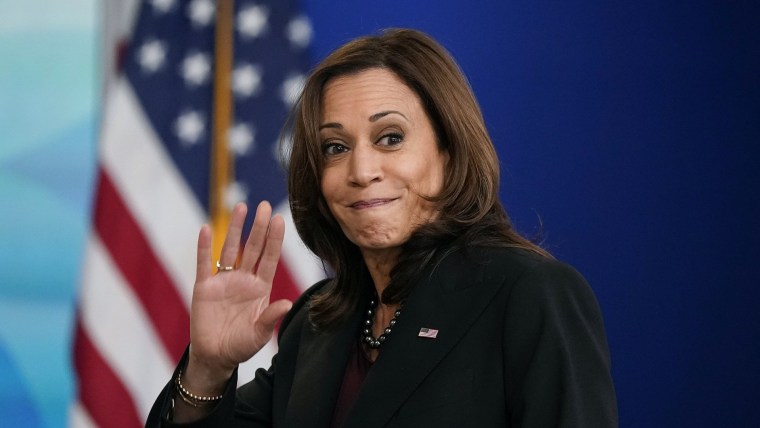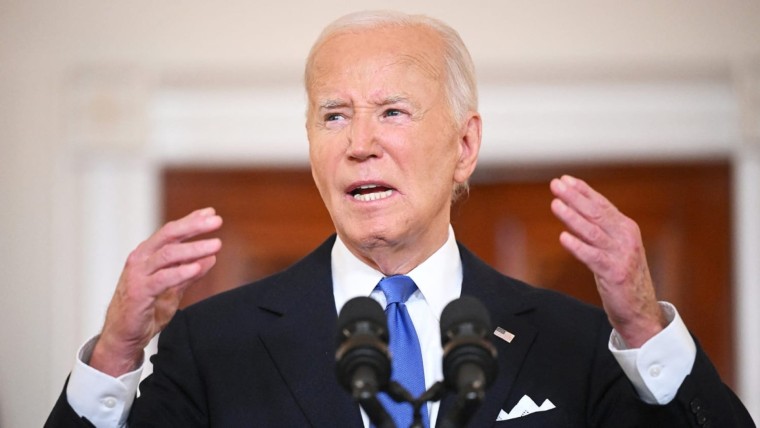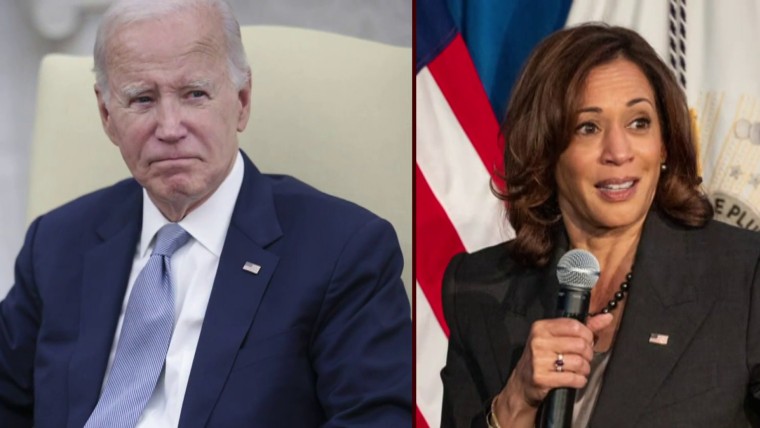UPDATE (July 21, 2024 4:10 p.m. E.T.): President Joe Biden on Sunday announced that he is withdrawing his bid for re-election from the 2024 presidential race.
The first time Kamala Harris ran for president, the result could generously be described as mediocre. In a post-mortem for her 2020 presidential campaign, which ended before any votes had been cast, NBC News reported that her run “began with an explosion of enthusiasm but fizzled quickly.” Aside from a strong first debate performance — highlighted, ironically, by a clash with Joe Biden — Harris never broke out of the middle of the primary pack.
Memories of that failed bid hover over Harris as Democrats consider the possibility that Biden will abandon his attempt at re-election, leaving her the logical nominee of their party. Is she a strong enough campaigner to win a general election? Could she unite the party and win over independent voters? Would she be able to overcome the inevitable torrent of racism and misogyny headed her way?
The fact that Harris ran and lost before tells us very little.
Not long ago, many Democrats would have answered no to those questions. But this is, to put it mildly, a unique circumstance. In fact, this may be the perfect circumstance, if not the only one, for Harris to win a presidential election.
Let’s dispense with one question right away: If Biden does decide to step aside, Harris will be the party’s nominee. That’s due not to any ballot requirement (the party hasn’t yet named Biden as its nominee), but to political reality. Harris is the vice president and heir apparent. Skipping over her would be taken as an insult to Black women, one of the party’s most important constituencies. Because she and Biden share a campaign committee, she would have unfettered access to his campaign funds. Other potential candidates, including Govs. Gavin Newsom (California), Gretchen Whitmer (Michigan) and Josh Shapiro (Pennsylvania), are smart enough to know that an effort to elbow her out of the way would most likely fail and damage their future ambitions.
So why might Harris be a stronger candidate than people give her credit for?
First, the fact that she ran and lost before tells us very little; plenty of politicians have run, lost and done better when they ran again. Biden himself ran two abysmal presidential campaigns, in 1988 and 2008, before his 2020 victory. George H.W. Bush, Ronald Reagan and Richard Nixon all became president after losing. Their successful races were as much about being in the right place at the right time as learning from their mistakes.

The scenario in which Harris replaces Biden involves a brief and intense general election campaign of about three months — and that could work to her advantage. The truncated campaign would upend the prevailing theme of news coverage that emphasizes disillusionment and demobilization by presenting the election as a choice between two unpalatable alternatives. Encouraged by the tone of that coverage, many undecided voters have understood their choice as between a geezer or a lunatic convicted of a felony.
Harris, on the other hand, is neither old (she’s 59) nor crazy. Republicans would attempt to portray her as a far-left radical, just as they do with every Democrat. But independent voters might reasonably conclude that she would neither nod off in critical meetings nor erect a sign outside the Oval Office reading “Bribes Accepted Here.” And if she lost the election, she wouldn’t try to overthrow the government.
Harris has become the administration’s chief advocate on reproductive freedom, which is the single most important policy issue in this campaign.
Harris might carry the baggage of things voters don’t like about the Biden administration, but some of his problems wouldn’t transfer to her. Just by being energetic, she would be a step up from Biden as a campaigner. Would the Muslim Americans livid at Biden for his embrace of the Israeli government feel equally angry at Harris and sit out the election? Perhaps, but they might well view her as an opportunity for a fresh start. The same could be true of the younger voters who have been lukewarm on the president. And though it’s true that she occasionally gets mired in banality, today that seems like the most trivial of problems.
Her best moments, on the other hand, have come when she’s acting as the prosecutor she once was. And prosecuting the case against Donald Trump is the singular task of the Democratic nominee. Trump has never been popular; he lost the popular vote twice, produced two disastrous midterm elections for his party and is the only president in the history of polling to never crack 50% approval even for a day. Voters need to be constantly reminded of Trump’s misdeeds, and Harris is more capable of making that case than Biden is. She would also bring out the worst in Trump; we can all imagine the repulsive things he would say about her, which would thrill his hateful cultists but reinforce for the rest of the electorate why they don’t like him.
Furthermore, in the wake of the Dobbs decision overturning Roe v. Wade, Harris has become the administration’s chief advocate on reproductive freedom, which is the single most important policy issue in this campaign and could be the key to a Democratic victory. She is far more passionate speaking about it than Biden, whose evident discomfort with abortion often leaves him tongue-tied on the issue.

Would Harris go through periods of savage coverage from a news media that sometimes acts as though its job is to cast Democratic candidates in the worst possible light? Yes. But that will happen to Biden, too.
But Republicans hate her, you might say. That’s true. But they hate Joe Biden, too — and if they didn’t immediately hate anyone who replaced him, they would quickly learn to. There might be Republican-leaning voters who wouldn’t vote in a Trump-Biden matchup but would turn out against Harris, but no one knows if that’s the case or how many of them there are. It’s just as likely, if not more so, that the large number of indifferent or demoralized Democratic-leaning voters who would have sat out a race in which their best option was voting for a feeble Joe Biden would turn out for Harris.
None of this is to say that Harris is a perfect choice or that the race wouldn’t be nail-bitingly close if she were the nominee. But stepping in to save a party in crisis and running against the most dangerous candidate America has ever faced may be her straightest path to becoming president. Sometimes, politics is all about timing — and this most unusual time could be her best chance.

